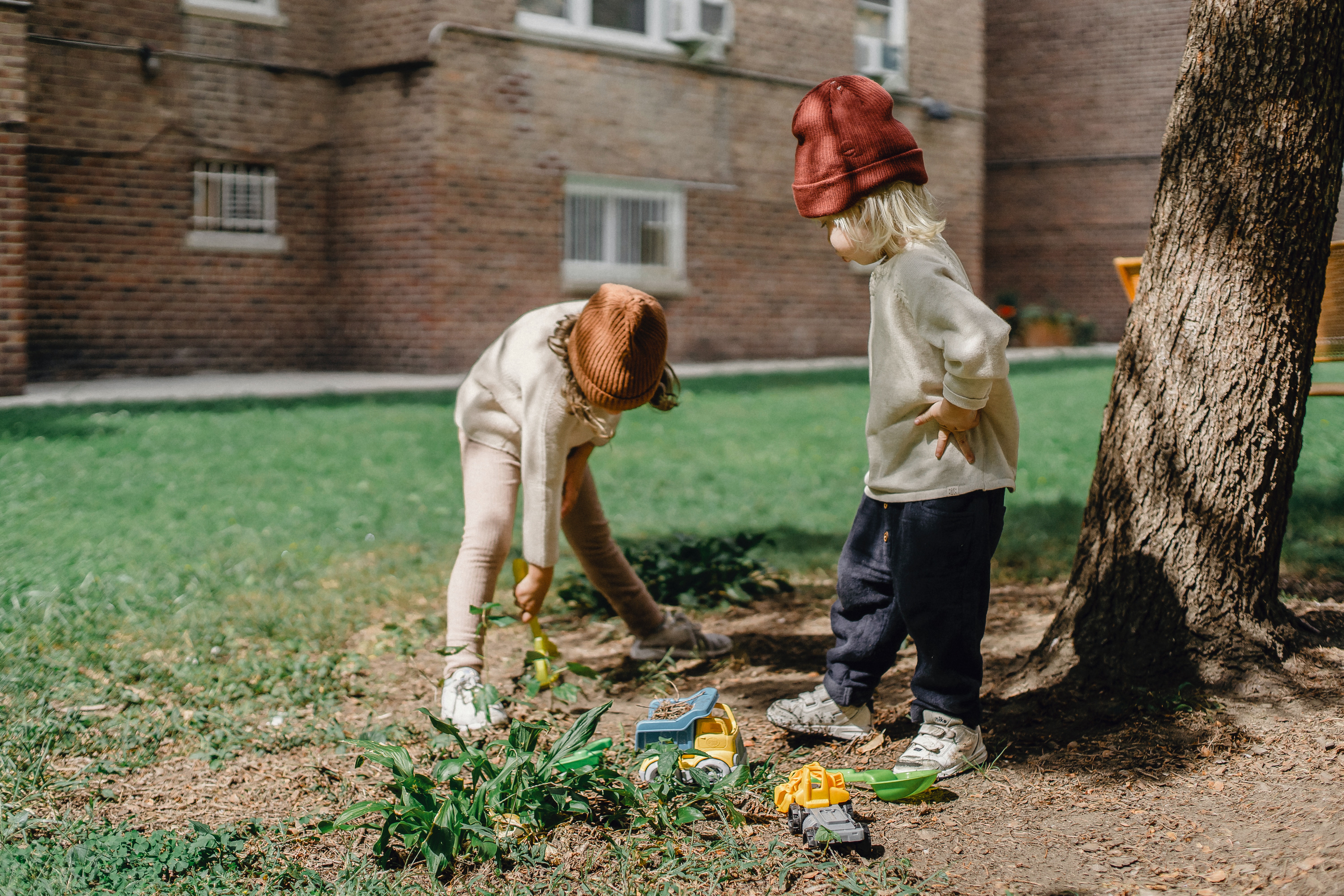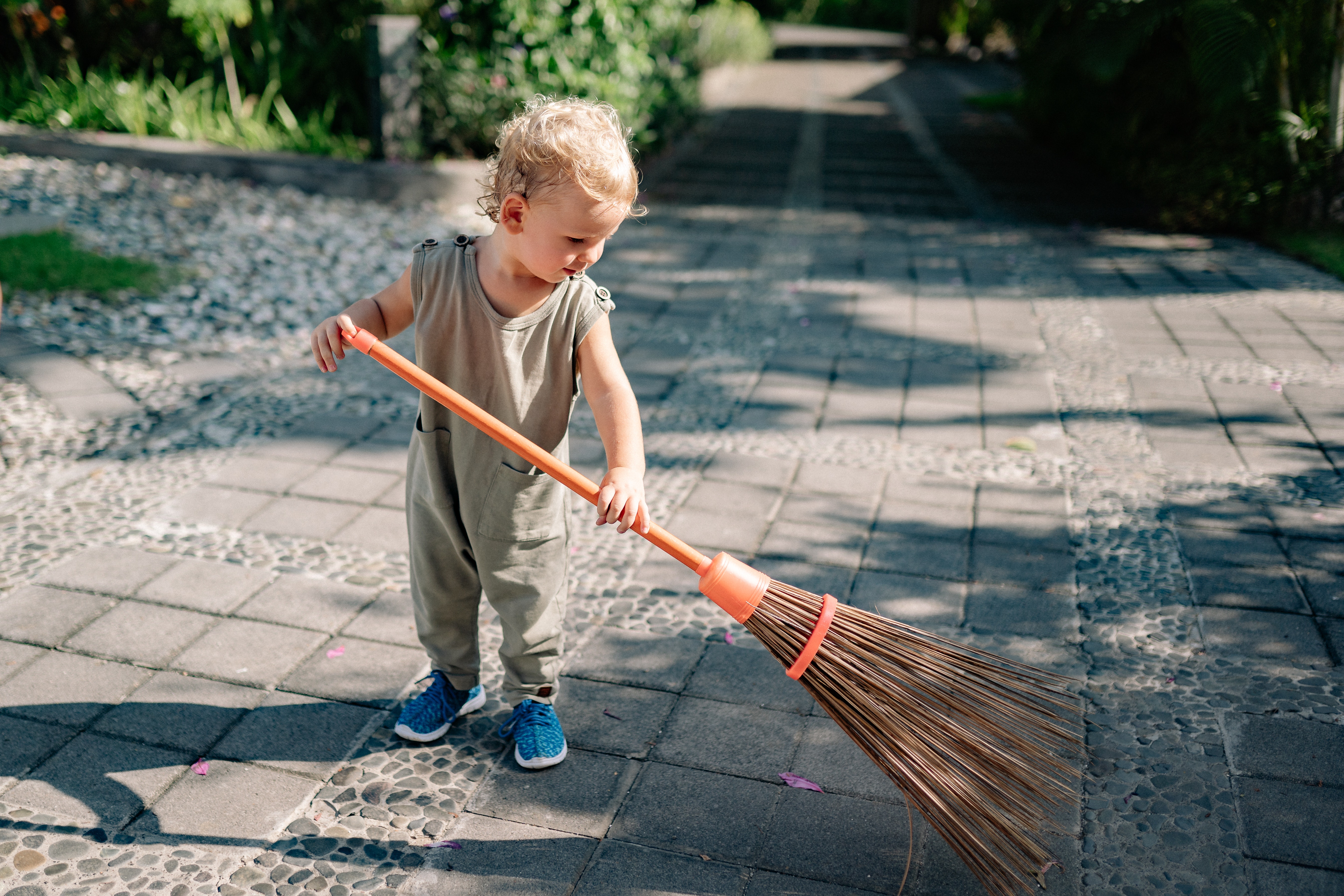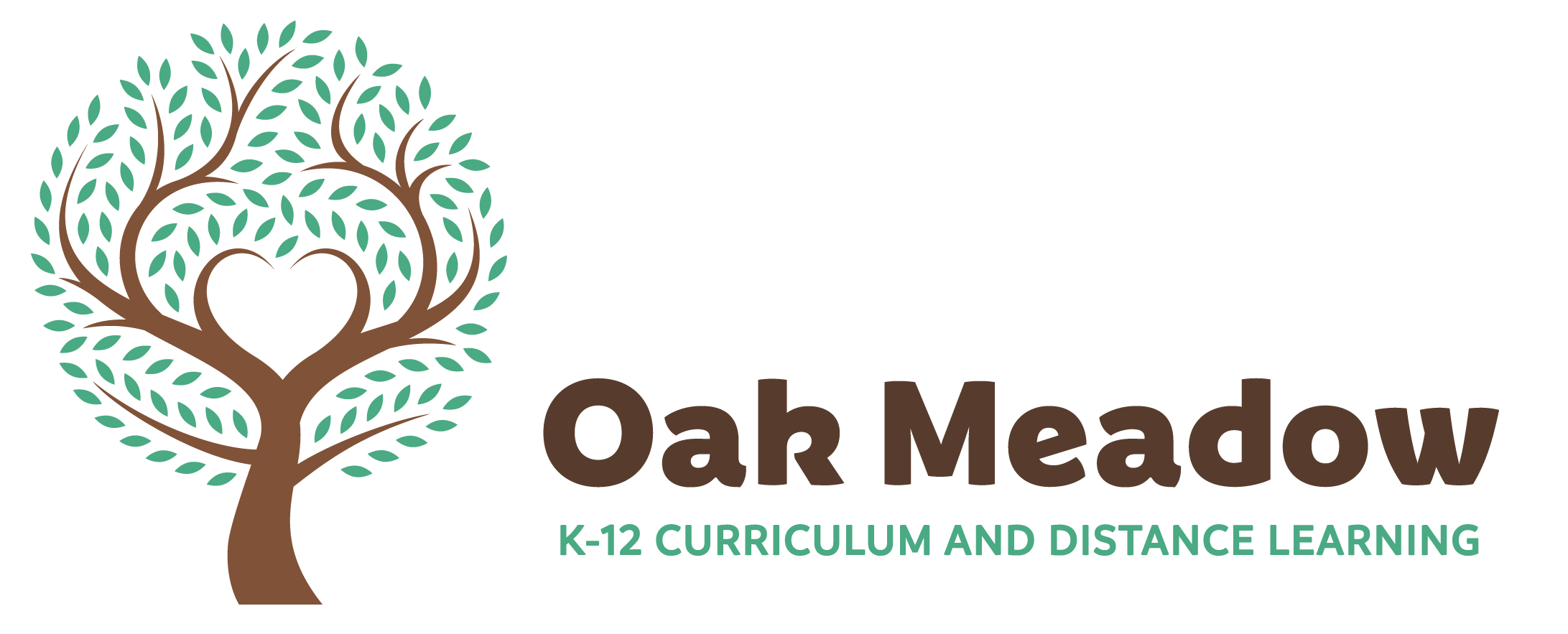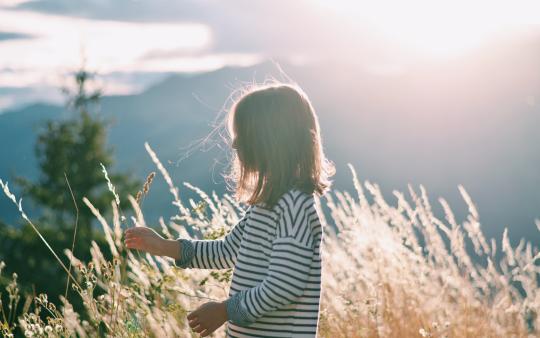Rudolf Steiner once said that the young child is “...wholly a sense organ,” meaning that they are engaged in whole-body learning using all of their senses. Before the age of seven, children learn best through imitation, movement, and imaginative play, all of which helps develop their physicality as well as their inner lives. Parents of preschool children can support this by building healthy rhythms, rituals, and reverence for the natural world.
During our extended time at home, many of us embraced slowing down, connecting with each other more deeply, and building intentional simplicity into our family rhythms and daily routines. As a result, more parents are exploring homeschooling and nature-based learning during their children’s early years than ever before. This fall, Oak Meadow will begin offering a unique and imaginative preschool curriculum to nurture the head, heart, and hands of a child, fostering a sense of wonder in their early learning about themselves and the world.
The Four Lower Senses and Early Childhood
Steiner believed that the foundations for learning are laid down in early childhood and depend on the four “lower senses” of touch, life, balance, and movement. Development of these senses enable the child to feel grounded and understand both their body and sense of self. Nurturing and supporting this growth makes children eager to explore the world around them.
Sense of Touch
The sense of touch begins developing in the womb and further develops in early childhood, gradually informing the child of where their body ends and their environment begins. It also lays the foundation for empathy and understanding social boundaries. Touching objects and the elements of nature helps children to deepen their understanding of the world around them, and for this reason a healthy sense of touch is critical to the development of the other senses
Sense of Life
Our sense of life relates to our well-being and teaches us to pay attention to how our bodies are feeling. We are typically more aware of this sense when we are unwell, over-stimulated, or tired. Young children benefit greatly from rituals and daily routines, such as verses before meals and transition songs between activities. Time spent outdoors connecting to daily and seasonal rhythms (for example, noting changes in the garden from spring to fall) also supports regulating and strengthening this sense.
Sense of Balance
The sense of balance relates to the vestibular system located in the inner ear, and has to do with helping the child to process where their body is in space. It is considered the unifying sense in that good balance is, literally and figuratively, the foundation for all other aspects of how a child experiences the world. Balance is strongly connected to movement, sensory processing, agility, and the development of laterality or left-right dominance. Activities for strengthening this sense include action verses, heel-toe walking, climbing in trees, and jumping rope to seasonal songs.
Sense of Movement
Proprioception, or the sense of movement, refers to how the body moves in space and in relation to the environment, as well as where body parts are in relationship to each other. It also gives children the framework for understanding their body geography. Developing this sense allows for planning and coordinating, giving the child the satisfaction of self-directed movements.
Nurturing movement-based learning requires the freedom to explore, opportunities for free play in nature and on playgrounds, lifting objects (such as carrying groceries or picking up large stones), and practicing skills without an expected result.

Song, Storytelling, and Play in Child Development
Young children actively learn through stories, songs, imaginative play, imitation, nature study, and handwork. Parents interested in homeschooling according to this philosophy will find the abundance of ideas and suggestions in the Oak Meadow curriculum invaluable in creating a wondrous and joyful learning experience.
Children of all ages love storytelling. The act of listening to, and participating in, a story builds connection with family members and creates a feeling of contentment. It allows for communicating with the whole body (through actions and role play), builds on daily and seasonal rhythms, encourages creative problem solving and cooperation, and helps to develop empathy and compassion for others and the natural world. Learning to tell nature stories in particular encourages these capacities, while awakening a sense of reverence and delight. Telling the story of a rain storm, the life cycle of a plant, or the building of a bird nest are only a few of the possibilities for storytelling at Oak Meadow. Children and parents can do these and other activities together in a multitude of ways that engage the senses.
Play-based activities develop spatial and body awareness, enhance vocabulary and language skills, and expand a child’s experience in the world by providing open-ended opportunities to integrate new information and explore new ideas in creative and joyful ways. Learning through play is the key to building a child’s capacities, including healthy habits and rhythms. This can take many forms, including unstructured outdoor time, imitation, and role playing.
Song and action verses are a wonderful combination of storytelling and active play. Finger play, hand actions, and body motions that accompany a verse or song strengthen the senses and memory, foster immersive imagination, and develop fine and gross motor skills. Adding these activities into daily routines and seasonal rhythms also deepens a child’s sense of security and comfort, providing a safe space to explore the larger world.
Including children in the work of everyday life is another way to integrate the senses, develop self-awareness, and appreciate shared responsibilities. There are a multitude of ways to provide children opportunities for handwork, including folding cloth napkins, harvesting from the garden, drawing with a stick in the dirt, or washing cutlery. Oak Meadow offers an abundance of ways of engaging young children in learning through doing in their daily lives.

A Treasury of Seasonal Stories and Play-Based Activities
Available this fall, the Oak Meadow preschool curriculum is a wonderfully creative approach to integrating both the physical and creative aspects of early childhood learning, while establishing a love of lifelong learning.
Included in the preschool curriculum package are:
- Preschool: A Treasury of Seasonal Stories and Play-Based Activities (Oak Meadow coursebook)
- Beeswax block crayons
- Watercolour paint kit
- The Heart of Learning by Lawrence Williams
- I Am Kind: Songs for Unique Kids by Lindsay Munroe
- Over the Hills and Far Away: A Treasury of Nursery Rhymes
The overall course is story-based, following the seasons of the year. Each story theme is thoughtfully expanded on with poems, games, song, nature study, and play-based activities. Parent-focused topics in each section of the coursebook provide guidance and in-depth discussions of different aspects of early learning, including how to develop rhythms, routines, and setting up your space. The Heart of Learning highlights the important aspects of early childhood learning, while Over the Hills and Far Away includes nursery rhymes and features beautiful illustrations from artists from around the world. Additional resources are suggested within the course to round out and customize the curriculum.
Exploring the world with wonder and joy
The beauty of homeschooling is exploring learning together and creating a flexible method that works best for each unique family. Parents and children working together in this way brings harmony, deepens relationships, and fosters a sense of curiosity and adventure about the world around them. Let this course be your guide to exploring the world with wonder and joy!

Founded in 1975, Oak Meadow provides a flexible, progressive education for independent learners in kindergarten to grade 12. Oak Meadow offers both a complete, creative, and well-rounded curriculum designed for homeschooling families and a distance learning school with teacher support and full academic credit.










